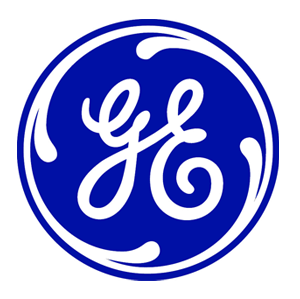Award-winning Environmentalist Ma Jun, Top Name on Fast Company’s 100 Most Creative People in Business List Joins GE EHS Training
Joins GE EHS Training
“It’s like college entrance exams all over again!” environmentalist Ma Jun jokingly complained during his three-day intensive GE Supplier Environmental Health and Safety (EHS) auditors’ workshop in Beijing in May 2012. Ma and eight of his colleagues at the widely respected Chinese watchdog group, Institute of Public and Environmental Affairs (IPE), were in the middle of a modified version of the training that GE’s professional assessors undergo before inspecting supplier facilities for environmental, health, safety, and human rights violations. While IPE staff found themselves in such a situation voluntarily, they had to face a written test covering two full days of training modules on topics like checking permit requirements; assessing environmental risks; and resolving findings—immediately after being taught the material. Thankfully, the test was an open book; the attendees still had to apply the new lessons to a day-long on-site inspection exercise of a new GE supplier.
This unique training program for IPE was conducted by Corporate Environmental Programs (CEP) Asia leader Qin ZhiGang, along with his colleagues Waldo Wu, Peggy Long and Crystal Ge. GE’s supplier EHS audit program serves as a critical feature of the company’s commitment to brand integrity while offering a valuable gauge in implementing standard baseline expectations around the world. But never has the program been explored in such depth by an external group.
IPE initially approached GE for more information regarding the company’s in-house Supplier Responsibility auditing program on February 9, 2012, when Qin and Waldo met with Ma Jun at his Beijing office.
Zhigang Qin suggested the best explanation would be taking the actual coursework required of assessors. “As an NGO we are often asked to give businesses environmental awareness training,” Ma said. “This was the first opportunity for IPE staff to receive such comprehensive EHS auditing training from a private firm.”
Ma started IPE in 2006 to disseminate information about pollution, government enforcement practices, and discharge data from various manufacturers throughout the country. Some 80% of China’s urban residents are exposed to what Ma calls “badly polluted” air, and half of the country’s water sources are “seriously contaminated.” In facing these national challenges, “the real barrier is not lack of technology or money,” he told Fast Company. “It’s [a] lack of motivation. The motivation should come from regulatory enforcement, but enforcement is weak and environmental litigation is near to impossible. So there’s an urgent need for extensive public participation to generate another kind of motivation.”
Starting initially with an open-source water pollution map of China, IPE has broadcast nearly 100,000 instances of air and water violations to more than 10 million online visitors. High-profile companies that ignore IPE findings and fail to comply with positive response often find their brands spotlighted in the media. Ma’s efforts were recently recognized with a 2012 Goldman Environmental Prize, often referred to as a “Green Nobel.”
The credibility of IPE’s data has prompted proactive responses from companies like GE, Walmart, Nike, and others. GE’s EHS auditors regularly use IPE’s environmental monitoring databases to screen suppliers before conducting routine on-site inspections. In addition, GE assessors conduct quarterly checks of IPE data against findings at their own supplier facilities. If differing from GE’s own findings, IPE-based discoveries are treated under an equal set of expectations and tracked to closure within 60 days.
By the time IPE approached GE for an insider’s look at supplier auditing, the request was welcomed with extended mutual respect. Given GE’s commitment to EHS capacity-building in under-resourced regions, CEP’s team in Asia jumped at the chance to lead an NGO training session. “It was incredibly moving to see IPE staff demonstrate such unparalleled dedication and enthusiasm” to GE’s processes, said Qin.
Both GE and IPE are already planning new collaborations that build on their unique NGO-corporate partnership revolving around technical information-sharing. “GE uses its deep technological expertise to create a powerful EHS auditing system for its suppliers in China,” said Ma. “We hope to maintain our strong ties … going forward.”

